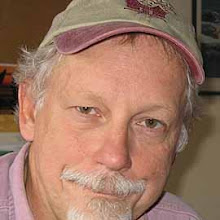"I’m excited about studying environmental issues because my generation is going to be the last to have a chance to do anything to avoid a catastrophe.” That’s how things look to a Unity college student meeting with college trustees last Friday.
It really is an exciting time to be working on environmental issues. As I write this I am at a George Wright Society conference in Portland, Oregon, which brings together a thousand or so people from the National Park Service, the US Geological Survey, and many universities. The conference theme is “Rethinking Protected Areas in a Changing World.” As advertised by this title, the presentations focus on change--change in the environment and change in the way that we need to think about and work with the environment.
Change can be frightening because we don’t know how it will work out. Periods of rapid change appear very different when you are in the middle of them than they do when you are looking back at them. At the start of this conference, Ken Burns and Dayton Duncan gave us a sneak preview of their upcoming 12 hour, 6 part PBS series titled “The National Parks: America’s Best Idea.” Duncan pointed out that when Lewis and Clark were in the middle of their exploration of this continent, they didn’t know how the trip would work out. They didn’t even know that they would be coming back alive.
Working with environmental concerns at the start of the 21st century, as the species is just at the outset of a journey in which it will discover how it responds to rapid climate change, it is understandable that we might feel a bit like Lewis and Clark did on some of their more difficult days. We should also, along with paying attention to the risks, keep focused on the adventure and the chance to learn and do new things. This is not just any time in the history of our species -- this is a uniquely exciting time.
The “National Park Idea," stripped to its essence, is an optimistic one. Our parks connect people to nature. They remind us that we are part of something bigger. As Dayton Duncan said, the connection to National Parks is not theoretical; it is personal. As with the parks, so with humans in nature generally – the Unity student has it right: the engagement with a rapidly changing climate over the next decades isn’t theoretical; it’s personal.
Wednesday, March 4, 2009
Subscribe to:
Post Comments (Atom)

No comments:
Post a Comment